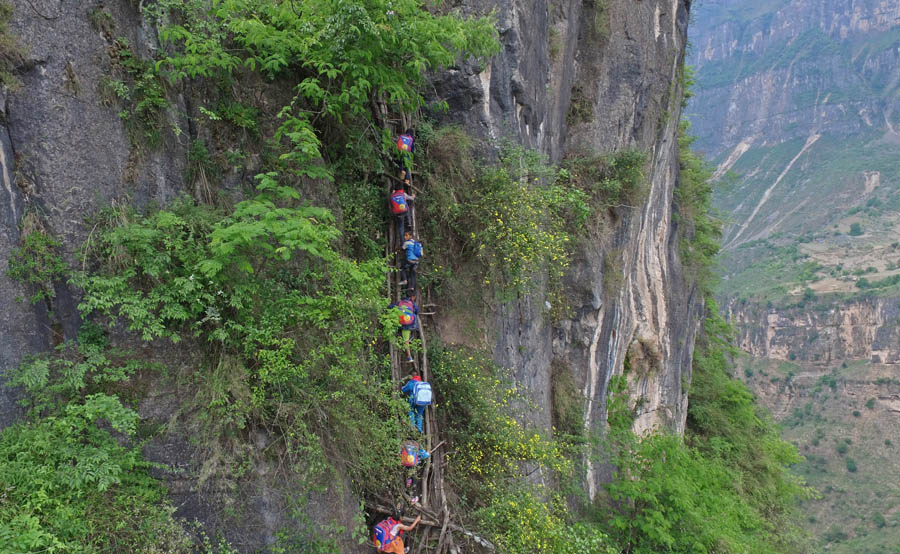 |
|
Children climb up a cliff on a vine ladder to an isolated village on the top of a mountain in Liangshan Yi autonomous prefecture, Southwest China's Sichuan province, on May 14, 2016. Atule'er village, home to 72 families, is known as "cliff village" because its vertical distance to the ground is 800 meters. The routes leading to the outside world are 17 vine ladders. [Photo/VCG]
|
Fifteen children regularly use a rattan ladder to scale an 800-meter cliff on their way to and from boarding school every two weeks in Liangshan Yi autonomous prefecture in Sichuan province.
The children, aged 6 to 15, belong to 72 families in Atuler village in Zhaojue county. The villagers go to the nearest market several kilometers away once a week using the same ladder to buy necessities and sell agricultural products, mainly pepper and walnut.
The ladder is a chain of 17 smaller ladders tied together, some even perpendicular and fixed to the cliff with steel bars or timbers. There are no safety measures. A villager in his 40s fell off the cliff and died not long ago.
Chen Jigu, one of the villagers, said the ladder is as old as the village, maybe hundreds of years.
"We replace a ladder with a new one when we find one of them is rotten," Chen said.
Most of the families live in houses made of mud, thatch and wood. The villagers said their ancestors chose to live in this difficult place to hide from war and tribal conflicts.
But that has led to great trouble in life. It takes about two hours for the children, led by an adult, to climb up the cliff, and nearly 1 1/2 hours to get down.
When a villager is too sick to climb down the mountain, a person must tie him or her onto their back to get down the cliff with the help of two other villagers.
All the villagers live hand-to-mouth on less than $1 a day.
"Our main income is from the pepper and walnut," said the village head, Er Dijiang. "The buyers know we are from the mountaintop village and that we do not want to carry the pepper or walnuts back, so they offer a much lower price-we have no choice."
Api Jiti, Party chief of Atuler village, said: "It is impossible to build a school on the mountaintop because the area is too small. The school down the mountain has reliable power and water supplies and the living conditions are much better than in the village."
The living cost is 300 yuan ($45.70) a semester per child at the school. The education itself is free. But the boarding cost is still a big expenditure for parents.
"The government and the families try their best to ensure every child can receive education, because we all know knowledge can help them live a better life," Api said.
Jike Jinsong, an official at the Zhaojue county government, said: "It will cost about 60 million yuan to build a road connecting Atuler and two other remote villages. But the county government only has 200,000 yuan for the project."
Jike said it is unrealistic to relocate the village down the mountain because their land is on the mountain and the villagers will lose it if they move to other places, where the land belongs to other villages.
After the Beijing News reported the children's dangerous school journey on Tuesday, Lin Shucheng, Party chief of the prefecture, promised to build a makeshift steel ladder to replace the rattan ladder as soon as possible to ensure the safety of the villagers.
The government will later invite experts to discuss how to solve the poverty and transportation problem, Lin said.
Ke Lage, Party chief of Zhaojue county, said the government is considering attracting investors to turn the ethnic culture and picturesque scenery in the mountains into a tourist attraction.
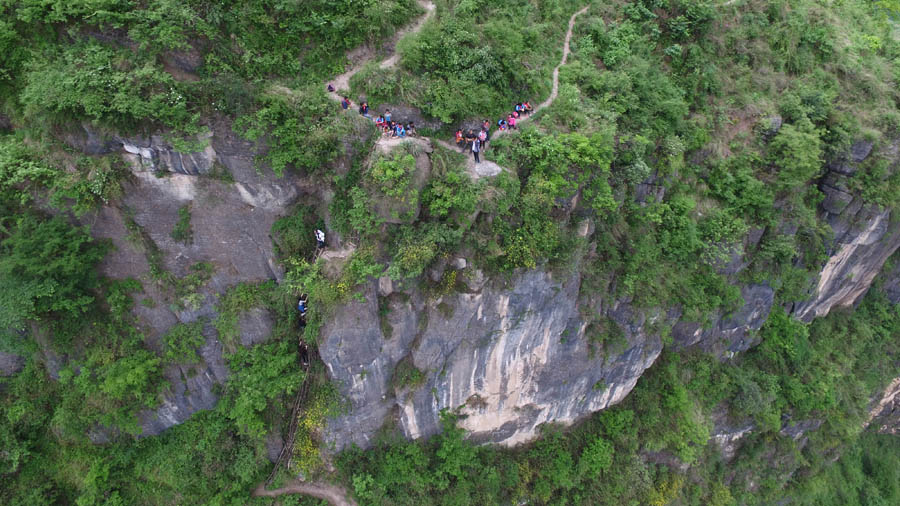 |
|
A bird's-eye view of kids climbing cliff, May 14, 2016. It takes a young and agile villager about one and a half hours to climb up the mountain, and even longer for kids. When the whether is bad, no one goes out of the village. [Photo/VCG]
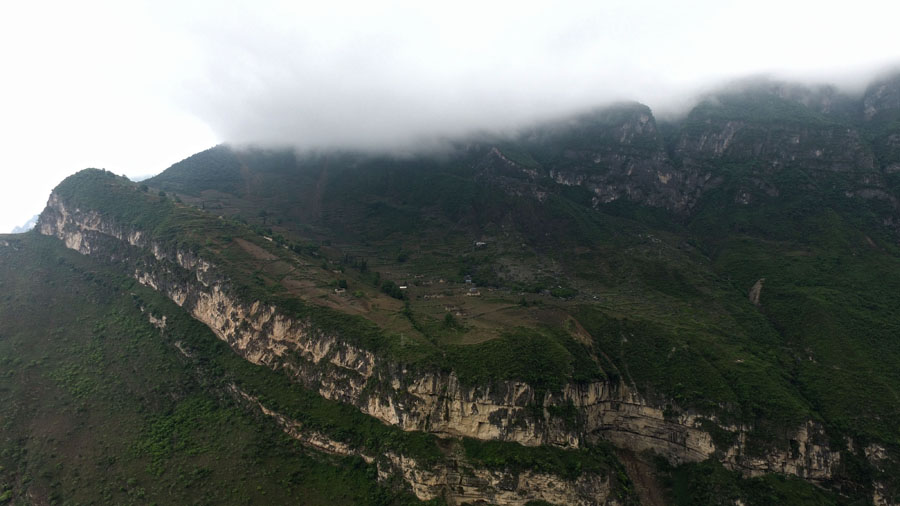 |
|
The village sits on the slope of the mountain, May 13, 2016. According to Apitiji, there was a cableway connecting the village and the outside world. But due to its high cost of usage, it had been barely used before being removed. A villager said as a metal ladder costs millions it has never been built. [Photo/VCG]
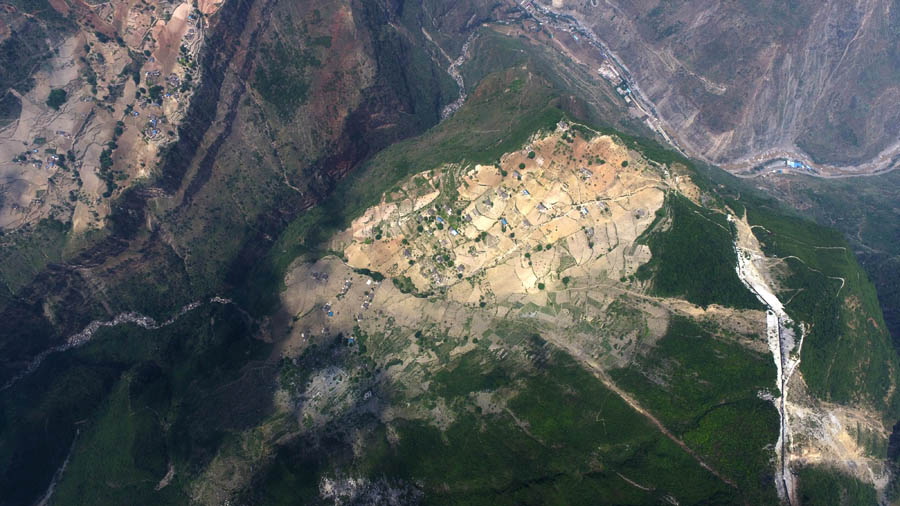 |
|
A bird's-eye view of Atule'er village, May 12, 2016. The village sits on the slope of a mountain with an elevation of 1,400 meters. Village Party chief Apijiti said as far as he knows, seven or eight people have died climbing the cliff. [Photo/VCG]
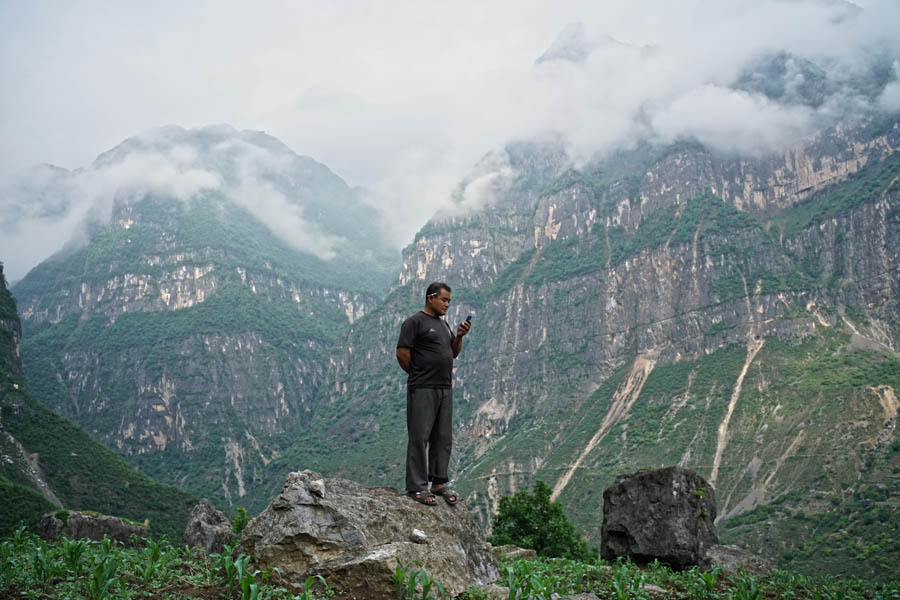 |
|
A villager stands on a rock to receive signal for his mobile phone, May 13, 2016. According to Apitiji, the village used to be a peaceful and rich place thanks to its fertile land and the isolation which prevented it from war and bandits. But now it lags the outside world because of poor transportation and most villagers live in poverty. [Photo/VCG]
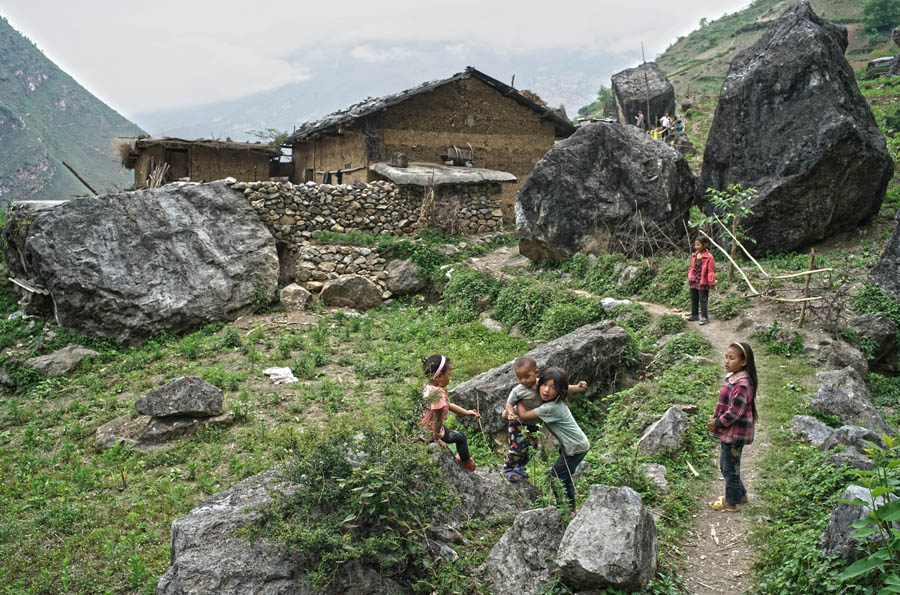 |
|
Children who do not go to school out of security concerns or poverty play at the village, May 14, 2016. Without road, peppers and walnuts the locals plant and livestock they raise cannot be transported out of the village. Few girls from the outside want to marry young men in the village, and the bride price for girls in the village is lower than those from other places. [Photo/VCG]
 |
|
Children climb a vine ladder on their way home, May 14, 2016. The children study at a school at the foot of the hill and go home twice a month. [Photo/VCG]
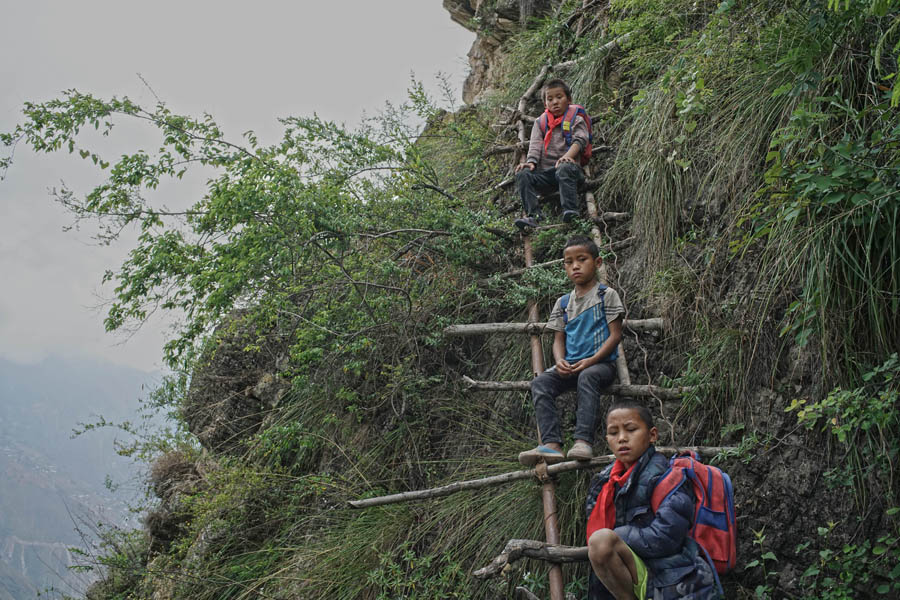 |
|
Children rest on the vine ladder, May 14, 2016. [Photo/VCG]
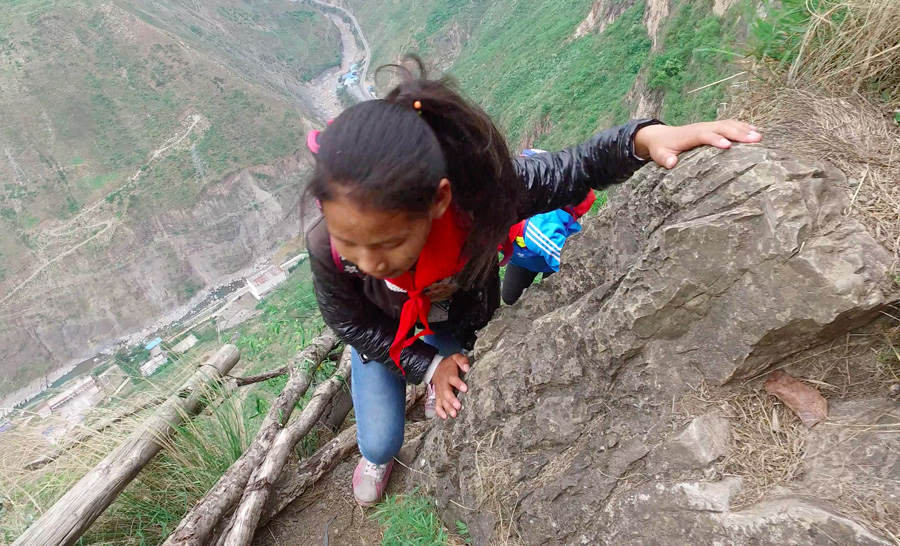 |
|
A girl holds on to a rock as she climbs the mountain, May 14, 2016. [Photo/VCG]
|
|
|
|
|
|
|
|
By LI YANG (China Daily)
Using WeChat? Scan QR Code or Press the Fingerprint Below ↓
--- (Or ADD WeChat ID: OKOKOKOKnet)
